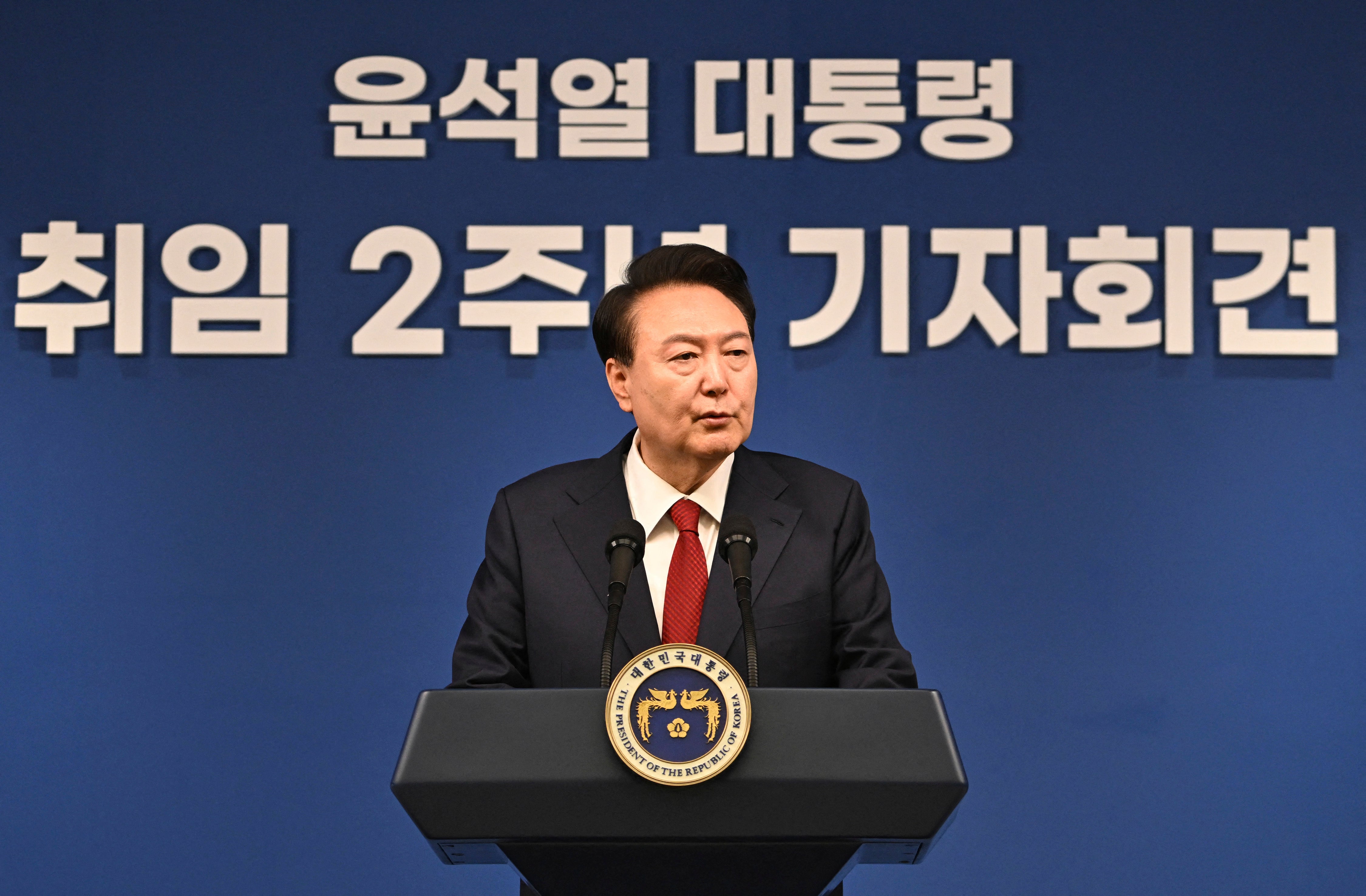South Korea to create new ministry to tackle plummeting birth rate
Fertility rate in South Korea has been severely hit and continues on a dramatic decline
South Korea will set up a ministry to address the country’s plummeting birth rate, president Yoon Suk Yeol announced on Thursday, calling it a “national emergency”.
The fertility rate in South Korea has been severely hit and continues on a dramatic decline in 2023 as women concerned about their careers and the financial cost of raising children are either delayed childbirth or deciding not to have babies.
Women have cited the heavy emotional and physical burden of raising a child mostly by themselves, lost career opportunities, and the financial cost, setting the first such trend impacting a national demographic globally.
On Thursday, Mr Yoon said South Korean parliament will be requested for cooperation to set up what he called the “Ministry of Low Birth Rate Counter-Planning”.
“We will mobilise all of the nation’s capabilities to overcome the low birth rate, which can be considered a national emergency,” he said, announcing a new policy push.

The demographic crisis in the country is blamed on a number of factors, but largely Korean couples’ frustrations with rising cost of living and declining quality of life have been considered as the primary reasons.
Addressing his first press conference in 21 months, the president pushed for improving the economy performance as he flagged the emergency of declining birth rates the coming three years of his term.
"I think the important thing going forward is indeed the economy. Corporate growth and job creation are important too but what I think is more important is to try harder to look for what is inconvenient in the life of each and every person and to resolve them," the South Korean leader said.
He was standing behind a plaque which read: “The Buck Stops Here”.
The ministry will address the challenges contributing to the record low birth rate and fast-ageing population. "This is not a matter we can take time to work on," he said.
The South Korean government and policymakers have been striving to find new and innovative measures to address the crisis of dwindling child birth rates. The birth rates in the country dropped to 0.72 babies per woman in a lifetime in 2023, the lowest national birth rate.
Under the government’s scheme to motivate parents, South Korean couples receive financial assistance ranging from 35m won (£20,566) to 50m won (£29,380) through different incentive and support programs from the time of their child’s birth until they reach the age of seven.
It comes as the boss of a South Korean firm is offering employees up to £59,000 to have children and help lift the country’s birth rate. Booyoung Group, a construction firm based in Seoul, plans to pay employees 100m Korean won each time they have a baby.
Join our commenting forum
Join thought-provoking conversations, follow other Independent readers and see their replies
Comments
Bookmark popover
Removed from bookmarks